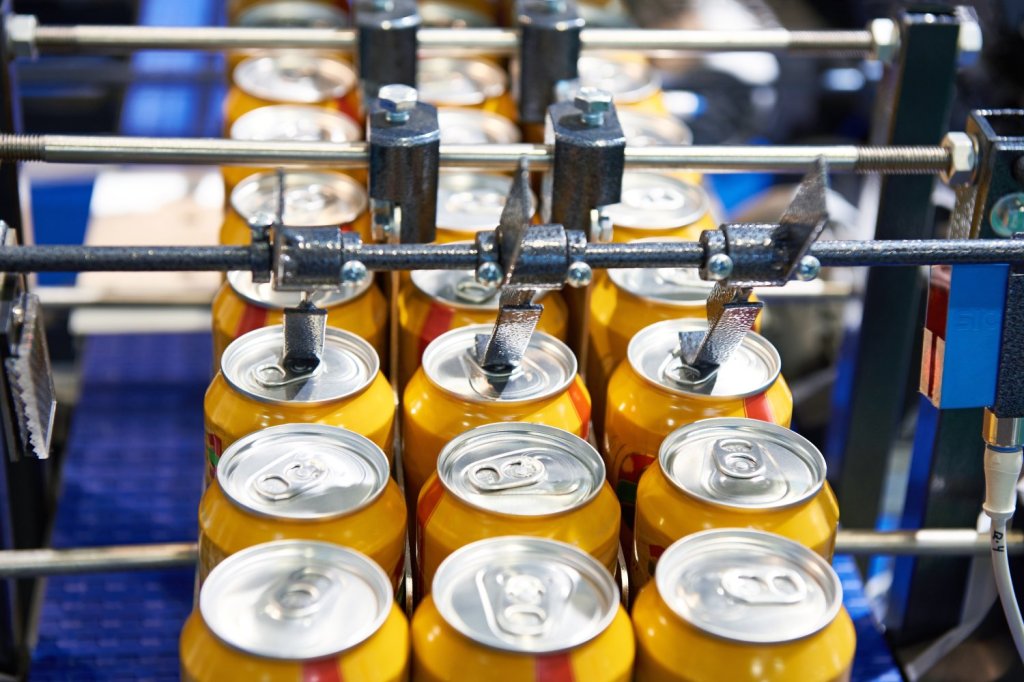The sugar tax, formally known as the soft drinks industry levy (SDIL), impacts businesses that manufacture, package, or import sugary drinks. These businesses either absorb the cost, pass it on to customers with higher prices, or reformulate their product to avoid the tax entirely.
And while businesses that sell sugary drinks don’t pay the tax directly to the government, they’re likely to be affected by higher costs from their suppliers.
The government announced changes to the sugar tax as part of the Autumn Budget 2025. It will include more products, such as dairy or non-dairy milk-based drinks. And the maximum amount of sugar allowed in drinks before facing the sugar tax will be lower.
How does the sugar tax work?
The sugar tax is placed on manufacturers and importers of pre-packaged sugary drinks.
It’s a two-tiered system with different rates depending on how much sugar the drinks contain:
| Sugar content | Tax rate |
| 5g to 8g of sugar per 100ml | £1.94 per 10 litres |
| 8g or more of sugar per 100ml | £2.59 per 10 litres |
The SDIL is mainly designed to target soft drinks. That’s why there’s currently a lot of exemptions to the tax, like:
- drinks with less than 5g of total sugar per 100ml
- pure fruit juices and vegetable juices
- milk and milk-based drinks (though this is currently under review)
- milk substitute drinks (also under review)
- alcohol-free beer and wine
- drinks for medicinal or specific dietary purposes
- powdered drinks
- liquid drink flavourings
Small producers are also exempt from the tax, regardless of how much sugar is in their product.
The rate of the tax is also adjusted in line with inflation, with the most recent rise coming in April 2025.
Sugar tax changes from January 2028
It was announced in the Autumn Budget 2025 that:
- the minimum threshold for the lower rate of sugar tax will be lowered from 5g of total sugar per 100ml to 4.5g of total sugar per 100ml
- the exemption for pre-packaged milk-based drinks with added sugar (like bottled milkshakes and coffees) will be lifted
This change for milk-based drinks will also include plant-based alternatives with added sugar (such as oat milk). However, ‘open-cup’ milkshakes prepared in cafes, bars, or restaurants will remain exempt from the sugar tax.
These changes are due to come into force from 1 January 2028. The next steps will include a technical consultation on the draft legislation (published in 2026), followed by changes to legislation introduced as part of a finance bill.
Read more about sugar tax changes on the government website.
What is the impact of the sugar tax on businesses?
To avoid the tax entirely, many businesses decided to reformulate their drinks to come under the 5g limit. Or, as Coca Cola did ahead of the tax change, some producers chose to reduce the size of their drink while keeping the recipe the same.
The government estimates that 89 per cent of soft drinks aren’t taxed because of the adjustments made by manufacturers since 2018.
Why are the government making changes to the sugar tax?
Originally introduced in 2018 to promote healthier eating habits in children, the sugar tax is reported to have made a positive impact. This increased regulation on sugary drinks is meant to encourage companies to reduce the sugar in their products further.
But it’s also made £1.9 billion for the government since its introduction in 2018, according to government statistics. And a further expansion of the SDIL could bring in additional revenue for the government.
How could these changes affect businesses?
For larger companies, these changes could be significant. As many manufacturers reformulated their products to be below the 5g threshold, reducing the limit further could mean two things: either reformulate the product to be below the new limit, or pay the tax.
The cost of either of these outcomes could be high. Back in 2018, Irn Bru producers AG Barr spent £1.4 million reformulating their drinks to avoid the SDIL.
Companies that choose to pay the sugar tax could spend up to £259,000 a year depending on what tier they’re in.
Small businesses that sell sugary drinks could be hit with higher costs from suppliers, which they’ll either have to absorb or pass on to customers. Smaller manufacturers (those who produce less than one million litres of drinks above the threshold a year), will continue to be exempt from the sugar tax.
More useful articles for small business owners
- When is Making Tax Digital?
- How much is VAT?
- How to pay National Insurance as an employer
- When is corporation tax due?
